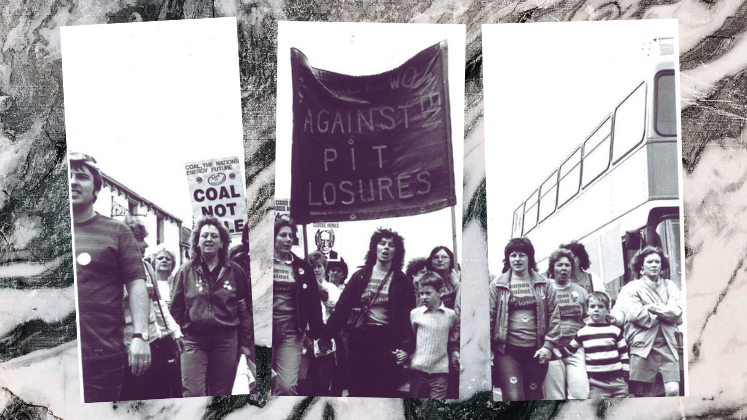
 Digital collections, such as those built in libraries and other cultural heritage institutions, are being used less as mere static repositories but rather as live, interactive resources. Harriett Green and Angela Courtney have examined humanities researchers’ needs for digital collections and learned that they are not only essential to scholars’ ability to access materials but also influence multiple aspects of their research practices. Digital collections offer researchers opportunities to develop their digital scholarship skills and enhance their scholarly communications activities.
Digital collections, such as those built in libraries and other cultural heritage institutions, are being used less as mere static repositories but rather as live, interactive resources. Harriett Green and Angela Courtney have examined humanities researchers’ needs for digital collections and learned that they are not only essential to scholars’ ability to access materials but also influence multiple aspects of their research practices. Digital collections offer researchers opportunities to develop their digital scholarship skills and enhance their scholarly communications activities.
How can a student discover and share a digital photograph of 1920s Chicago in their project? How can a faculty member annotate a digitized medieval manuscript with informative analysis that other scholars around the world can see?
More than ever, the digital collections we build in cultural heritage institutions cannot remain static repositories, but rather become interactive resources.
Studies have examined the sustainability and impact of digital collections (Maron and Pickle 2013, Meyer 2011), researchers’ practices and specialized disciplinary needs with digital resources (Palmer and Neumann 2002, Palmer et al. 2009, Zorich 2012, Babeu 2011, Rutner and Schoenfeld 2012, Sukovic 2008, Toms and O’Brien 2008), and effective models (Palmer et al. 2010, Fenlon et al. 2014). We extended this vein of research through a research study that examined humanities researchers’ needs for digital collections, and we gathered scholars’ responses through a survey and interviews with humanities faculty from 12 US research universities. We learned that digital collections were not only essential to scholars’ ability to access materials, but they also influenced multiple aspects of their research practices. Our work found that scholars saw opportunities through digital collections to develop skills for working with digital objects, engage in new forms of peer review, and connect to others’ works in virtual spaces—a suite of practices and processes that can be defined as their scholarly communications activities.
 Image credit: Great Western Railway Station, Yonge St., north-east corner, Esplanade E. by Special Collections Toronto Public Library. This work is licensed under a CC BY-SA 2.0 license.
Image credit: Great Western Railway Station, Yonge St., north-east corner, Esplanade E. by Special Collections Toronto Public Library. This work is licensed under a CC BY-SA 2.0 license.
Building digital skills
A critical factor in effective use of digital collections is the ability to apply new approaches and tools. Respondents shared that connecting digital scholarship approaches to disciplinary practices – described by a respondent as “mapping scholarly practices to IT methodologies” – can be a highly effective approach to building skills with data. These new skillsets can reshape scholars’ perspectives on how digital scholarship can be created and evaluated.
New forms of peer review
Peer review in digital scholarship can entail new networked and dynamic forms of sharing, connecting, and evaluating scholarly work. Labeled “intellectual networking” by one researcher, another explained a cyclical research process that involves “integrating feedback into research,” and that “critiquing your own work happens when you share work with colleagues.” Another respondent observed: “like in the sciences, I see more cross-fertilization of ideas and more interdisciplinary research/creative endeavors developing as a result of the ease of information transfer through digital media.” Digital collections offer means for scholars to share, annotate and link data to research analyses, and thus collections can provide collaborative spaces.
Virtual research ecosystems
The concept of “virtual research environments” offers a useful framework for the potential of digital collections, and studies have considered the networks that researchers build through digital collections (Palmer 2005). Respondents expressed the need for online spaces that enable them to work across projects, share data, and disseminate findings in dynamic forms. As one respondent described: “in my field, drowned in data, [we] need database models, information integration, [and] need to develop an ontology of digital support for humanities.” Initiatives such the MLA Commons CORE and DARIAH-DE provide models for cyber-infrastructure to support data sharing and communication needs for digital scholarship.
Curated tools and data
Respondents also cited the need to locate quality digital tools and resources online. One researcher explained: “tools to decide which digital resources to use ([such as] reviews) don’t exist the way they do in print.”
Curated and interoperable digital content that can be used in multiple resources is critical for the effectiveness of digital collections as research data to be shared. One respondent noted: “researchers want to waste little time in learning new tools. Interoperability can help solve some problems.” Rich metadata also was a frequently cited need for digital collections. Potential models for open digital collections include the Yale Center for British Art, Europeana, Digital Public Library of America, and NYPL Digital Collections.
We join other research colleagues in finding that as use of digital content increases, scholars seek new ways to share, engage, and disseminate research. As a respondent observed: “the whole system of scholarly communication needs to be revisited… But it’s threatening and needs to be done carefully.” We believe that an inclusive collaboration between researchers and information professionals can lead to new possibilities for sharing discoveries.
This blog post is based on the authors’ article, ‘The role of digital collections in scholarly communications’, published in Archiving 2016 – Final Program and Proceedings (DOI: 10.2352/issn.2168-3204.2016.1.0.193).
Note: This article gives the views of the authors, and not the position of the LSE Impact Blog, nor of the London School of Economics. Please review our comments policy if you have any concerns on posting a comment below.
About the authors
Harriett Green is the English and Digital Humanities Librarian and associate professor, University Library at the University of Illinois at Urbana-Champaign. Her research focuses on the usability of digital humanities resources, digital pedagogy, and humanities data curation. Her research has been supported by grants awarded from the Institute for Museum and Library Services and National Endowment for the Humanities.
Angela Courtney is Director of Scholars Commons, and Head of the Arts and Humanities and Reference Services Departments at the Herman B. Wells Library at Indiana University, Bloomington. She is the co-editor of the Victorian Women Writers Project and Indiana Authors.








1 Comments